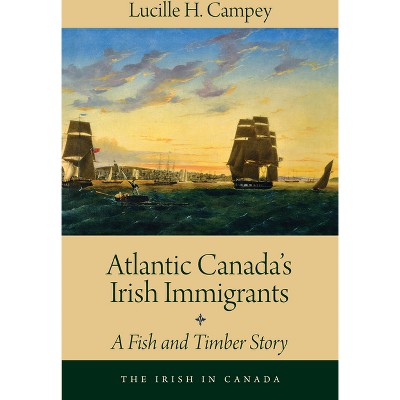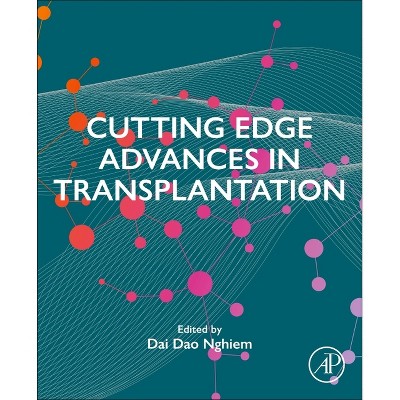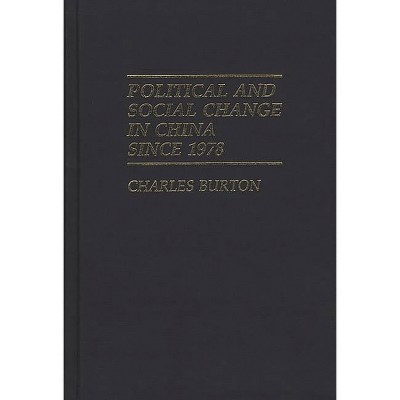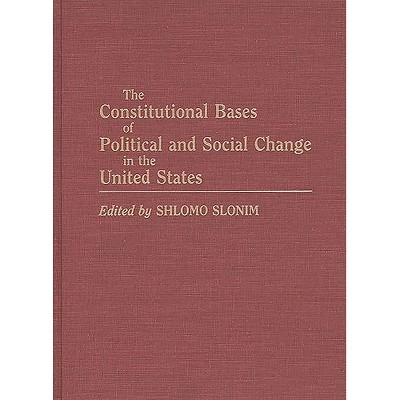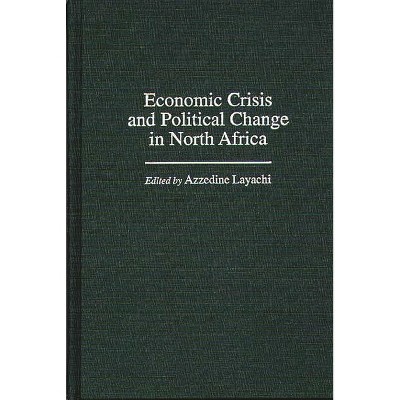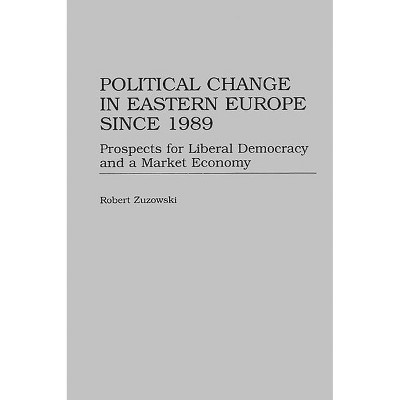Sponsored

Political Change on Taiwan - by Peter Moody & Peter R Moody (Hardcover)
In Stock
Sponsored
About this item
Highlights
- This volume surveys recent Taiwanese politics, mainly from the perspective of the ruling KMT party.
- About the Author: PETER R. MOODY is Professor of Government and International Studies at Notre Dame.
- 224 Pages
- History, Asia
Description
About the Book
This volume surveys recent Taiwanese politics, mainly from the perspective of the ruling KMT party. It includes analysis of recent changes in the party itself and also in the relations between the party, the opposition, and society generally. Also included is simple statistical analysis of rank-and-file KMT activists and of the 1989 national elections. The work's theoretical center is the question of democratization, with an attempt to explore an anomaly: the KMT is, apparently, an example of a ruling hegemonic party that has undertaken a genuine liberalization, instituting changes that would put its rule at risk.
The general theoretical issue must be seen in the context of the specific Taiwan situation, and the work analyzes the complications this engenders. Democratization in particular has implications for the future relations between mainlanders and Taiwanese (particularly, can the KMT retain its integrity as a cohesive party if it becomes a Taiwanese-dominated political organization operating on Taiwan alone?), and the potential contradiction between a democratic Taiwan and the future unification of China. This volume will be essential reading for political scientists, students and scholars involved in the study of Taiwan as well as mainland China.
Book Synopsis
This volume surveys recent Taiwanese politics, mainly from the perspective of the ruling KMT party. It includes analysis of recent changes in the party itself and also in the relations between the party, the opposition, and society generally. Also included is simple statistical analysis of rank-and-file KMT activists and of the 1989 national elections. The work's theoretical center is the question of democratization, with an attempt to explore an anomaly: the KMT is, apparently, an example of a ruling hegemonic party that has undertaken a genuine liberalization, instituting changes that would put its rule at risk.
The general theoretical issue must be seen in the context of the specific Taiwan situation, and the work analyzes the complications this engenders. Democratization in particular has implications for the future relations between mainlanders and Taiwanese (particularly, can the KMT retain its integrity as a cohesive party if it becomes a Taiwanese-dominated political organization operating on Taiwan alone?), and the potential contradiction between a democratic Taiwan and the future unification of China. This volume will be essential reading for political scientists, students and scholars involved in the study of Taiwan as well as mainland China.Review Quotes
?Moody (Notre Dame, author of three previous books on China) offers a chronological description of regime transition based not on research over a long period but on secondary sources. Asking how an entrenched authoritarian ruling party has liberalized its rule, he begins by describing, within a brief history of Taiwan, the development of the Kuomintang (Chinese Nationalist Party, KMT). He focuses on individual leaders (particularly Chiang Ching-Kuo and his reforms) and factions in the party leadership, and discusses the intersection of party, government, and society through detailed analysis of party membership and a "preliminary ecological analysis," which correlates the KMT vote with characteristics of the population. He concludes by reviewing the external context and recent developments, especially the 1989 elections. Cautiously optimistic, Moody believes the KMT will fragment as democratization proceeds, and that tension will develop between further democratization and eventual reunification with China.?-Choice
"Moody (Notre Dame, author of three previous books on China) offers a chronological description of regime transition based not on research over a long period but on secondary sources. Asking how an entrenched authoritarian ruling party has liberalized its rule, he begins by describing, within a brief history of Taiwan, the development of the Kuomintang (Chinese Nationalist Party, KMT). He focuses on individual leaders (particularly Chiang Ching-Kuo and his reforms) and factions in the party leadership, and discusses the intersection of party, government, and society through detailed analysis of party membership and a "preliminary ecological analysis," which correlates the KMT vote with characteristics of the population. He concludes by reviewing the external context and recent developments, especially the 1989 elections. Cautiously optimistic, Moody believes the KMT will fragment as democratization proceeds, and that tension will develop between further democratization and eventual reunification with China."-Choice
About the Author
PETER R. MOODY is Professor of Government and International Studies at Notre Dame. He is the author of Chinese Politics after Mao (Praeger, 1983) and Political Opposition in Post-Confucian Society (Praeger, 1988).Shipping details
Return details
Frequently bought together


Trending Non-Fiction






